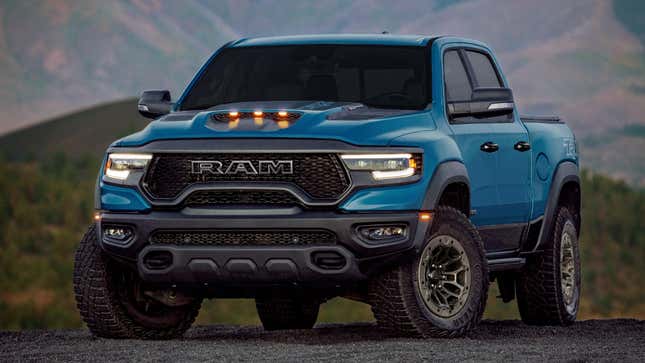
Cars are safer than they have ever been — at least for the people inside of them. As long as you’re wearing your seatbelt, you should be just fine in a crash. Unfortunately for the people outside the cars, though, that’s not the case. By design, big, heavy trucks and SUVs with tall, flat hoods are extremely dangerous to pedestrians. For over a decade, the National Highway Traffic Safety Administration knew it needed to do something about pedestrian safety, but now the Associated Press reports it’s actually taking action.
NHTSA proposed a new rule Monday that would require automakers to design their cars with the goal of minimizing pedestrian head injuries in the event of a collision. If implemented, it would apply to all vehicles weighing 10,000 pounds or less, although it’s no secret that the Escalades and F-150s of the world are the primary targets. After all, trucks and SUVs are responsible for most pedestrian deaths in the U.S.
According to NHTSA, pedestrian deaths climbed from 4,779 in 2013 to 7,522 in 2022, which works out to an increase of about 57 percent. This makes us an outlier among other developed countries where road deaths have been dropping instead of increasing. The NHTSA believes its new pedestrian safety rule would save 67 lives a year.
The Bipartisan Infrastructure Law compelled NHTSA to propose the rule, which goes further than you might expect. Instead of focusing on crash avoidance tech and other red herrings, NHTSA will be developing a test protocol that simulates head-to-hood crashes using human head-like dummies. As in, they’re actually doing something useful for once. Of course, this is DC we’re talking about, so there’s always a good chance the wording will get watered down before it goes into effect, but this is still a huge step in the right direction.
“We have a crisis of roadway deaths, and it’s even worse among vulnerable road users like pedestrians,” NHTSA Deputy Administrator Sophie Shulman said in the statement. “This proposed rule will ensure that vehicles will be designed to protect those inside and outside from serious injury or death.”

